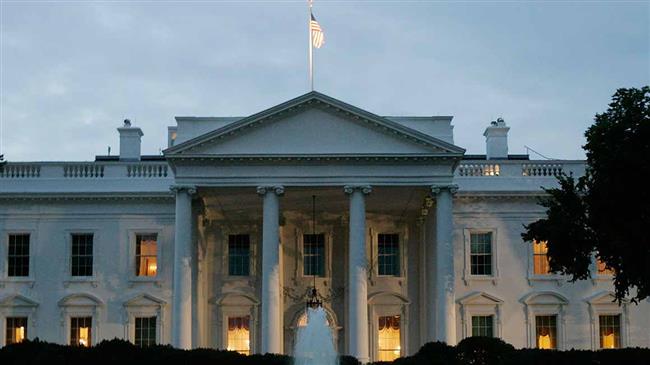
The White House. | Mark Wilson/Getty Images
The Group of 77 (G-77) and China have called for an end to unilateral coercive economic measures against developing countries amid global efforts to contain the novel coronavirus (COVID-19) pandemic.
In a statement released on Friday, the coalition of developing nations warned that unilateral sanctions adversely affect the capacity of the targeted countries to deal with the highly contagious disease.
"The Group of 77 and China consider that at this juncture, the enactment and application of unilateral coercive economic measures will have a negative impact on the capacity of States to respond efficiently, specifically in the acquisition of medical equipment and supplies to adequately treat their populations in the face of this pandemic. Ultimately, these measures also affect the essential cooperation and solidarity that should prevail among nations," the statement read.
"We therefore call upon the international community to adopt urgent and effective measures to eliminate the use of unilateral coercive economic measures against developing countries," it added.
The coronavirus, which can cause potentially fatal respiratory malfunction, has infected over one million people and claimed 59,197 lives worldwide.
The battle against the fast-spreading virus has been exceptionally hard in the countries like Iran as their efforts have been severely hampered by illegal American economic sanctions.
The US restrictive measures have hindered Iranís ability to import medicine and other medical supplies to confront the coronavirus.
Earlier this week, Iranís Foreign Minister Mohammad Javad Zarif said US "medical terrorism" is leading to "humanitarian catastrophe"; as it makes it "impossible" for ordinary people to have access to essential drugs amid the pandemic.
In Iran, the flu-like virus has so far infected 53,183 people and killed 3,294 others, according to the Iranian Health Ministry. Some 17,935 patients have also recovered from the respiratory disease.
In their statement, the G77 and China said they are resolved not to allow any stigmatization or discrimination of States, peoples or individuals in connection with the COVID-19 pandemic.
"This is a time for the international community, developed and developing countries alike, to demonstrate our capability to work together in solidarity to mitigate the impacts of COVID-19 and to build a community of shared future for humankind."
Spanish Foreign Minister Arancha González Laya also called on the countries sanctioning Iran, Cuba and Venezuela to lift their measures for humanitarian reasons so that they may have access to medical supplies to deal with the coronavirus.
EU backs lifting of sanctions
The European Union also expressed its support for the call by UN chief António Guterres to reduce US sanctions imposed on some countries in light of the coronavirus outbreak.
"We discussed the need for sanctions not to impede urgent deliveries of medical equipment needed to combat the coronavirus," EU foreign policy chief Joseph Borrell said after a meeting held Friday in Brussels for foreign ministers of member states of the bloc.
Borrell continued: "We are working on a joint statement in support of the invitation of the United Nations Secretary-General. We will see if it gets the approval of the European Union member states."
Europe, he said, believes that the sanctions contribute to exacerbating the dangers of the epidemic, especially in countries that are experiencing conflicts such as Syria, Libya and Yemen.
"In some countries, such as Syria, Yemen and Libya, the negative impact of the coronavirus can be escalated due to the conflicts taking place there, and for this reason we fully support the efforts of the United Nations Secretary-General to coordinate a common global response to the pandemic, and we support his call for the immediate ceasefire throughout the world. "
Guterres has called on countries of the world, especially members of the G-20 group, to abolish previously imposed sanctions on other countries to remove obstacles to efforts to combat the emerging corona virus.
On Thursday, the UN General Assembly unanimously approved a resolution for the first time on the coronavirus pandemic demanding "multilateralism" in the fight against the virus.
The resolution called for "intensified international cooperation to contain, mitigate and defeat" COVID-19 and recognized the pandemicís "severe disruption to societies and economies, as well as to global travel and commerce, and the devastating impact on the livelihood of people."
The assembly, however, failed to approve another resolution that was urging an end to trade wars, protectionist practices and US unilateral sanctions on countries across the world.
The European Union, Britain, the US and Ukraine objected to the draft that was sponsored by Russia.
SOURCE: PRESS TV
LINK: https://www.ansarpress.com/english/15404
TAGS:






























 online news tv
online news tv




